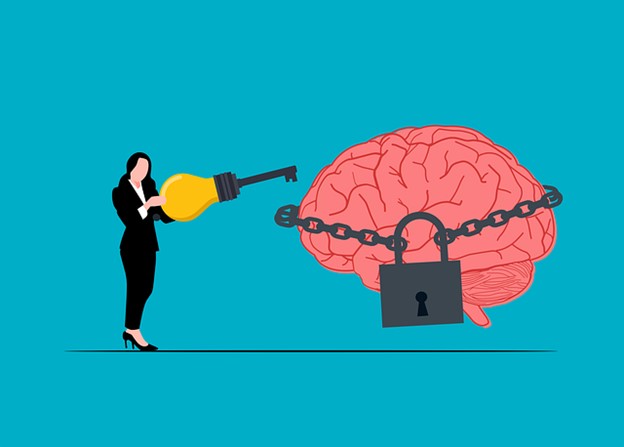At North Penn Now, we know that for those serving in the military, access to mental health treatment is crucial.
Addressing conditions like PTSD, anxiety, and major depression, which have a high lifetime incidence among military personnel and veterans, is not only important for personal well-being but is also essential to maintaining operational readiness.
Fortunately, military insurance, particularly TRICARE, offers comprehensive coverage options for mental health services. This article explores how to use military insurance for mental health treatment, the benefits available, and the steps to take to start therapy or counseling.
Whether seeking help for PTSD, depression, or other mental health challenges, this resource on mental health issues in the military can help Armed Forces personnel and their families navigate the resources available and understand how to utilize TRICARE to cover their treatment needs.

Active-duty service members and veterans often face mental health disorders due to the demands of their roles.
The high-stress environment, exposure to traumatic events, and the need to balance personal and professional lives can contribute to conditions like post-traumatic stress disorder (PTSD), depression, and anxiety.
Recognizing the importance of mental health, the Department of Defense provides TRICARE, a health insurance program specifically tailored to meet the needs of active-duty members, veterans, and their families.
TRICARE is a health care program under the Department of Defense that provides comprehensive coverage, including essential mental health care services.
It serves active-duty members, reservists, veterans, and their families, covering various health services, including inpatient and outpatient mental health treatment, counseling, and therapy.
The TRICARE network encompasses various providers, from psychiatrists and psychologists to licensed therapists and counselors. These services can support those dealing with trauma, stress, or other mental health issues by offering access to treatment options designed to meet the unique needs of military life.

Mental health problems among military personnel are not uncommon. Here are some of the primary mental health challenges service members face:
* PTSD: Post-traumatic stress disorder affects many military personnel due to exposure to traumatic events in combat or other high-stress situations.
* Depression: Depression can occur from prolonged periods away from family, high-stress situations, or difficulty readjusting to civilian life after active duty.
* Anxiety: Anxiety is often exacerbated by the pressures of military service, frequent relocations, and demanding missions.
Understanding these challenges is the first step toward seeking mental health treatment using military insurance. These conditions can impact relationships, career growth, and overall quality of life, so addressing them proactively is essential.
Recognizing the signs of mental health issues is crucial for seeking help and receiving treatment. Mental health issues can affect anyone, regardless of their background or experience.
It’s essential to be aware of the signs and symptoms of mental health issues, such as changes in mood or behavior, difficulty sleeping or concentrating, withdrawal from social activities, increased irritability or anxiety, and physical symptoms such as headaches or stomach problems.
Changes in mood or behavior
Difficulty sleeping or concentrating
Withdrawal from social activities
Increased irritability or anxiety
Physical symptoms such as headaches or stomach problems
Changes in appetite or sleep patterns
Difficulty concentrating or paying attention
Increased irritability or mood swings
Early intervention is critical for improving treatment outcomes and reducing the risk of long-term consequences. Recognizing the signs of mental health issues early can help individuals seek help and receive treatment. Mental health issues can be treated, and seeking help is a sign of strength.
Military personnel and their families can using military insurance for mental health treatment through TRICARE. Here’s how to get started:
TRICARE offers several plan options based on military status, location, and eligibility:
TRICARE Prime: This is a managed care option primarily for active-duty members and their families. It requires referrals for mental health services outside of primary care.
TRICARE Select: This plan is a fee-for-service option available for those who prefer more freedom in choosing providers.
TRICARE Reserve Select: Designed for members of the Selected Reserve, this plan provides affordable health coverage for those not on active duty.
Knowing your plan type is crucial because each plan may have different referral and authorization requirements for mental health services.
TRICARE covers a wide array of mental health services, including:
Outpatient Therapy: Access to licensed counselors and therapists for ongoing mental health support.
Inpatient Treatment: Hospital-based treatment for more severe cases requiring stabilization and 24-hour care.
Intensive Outpatient Programs (IOP): A structured program designed to treat moderate conditions without requiring an overnight stay.
Medication Management: Access to psychiatrists for prescription medications and regular follow-ups.
Substance Use Disorder: Access to treatment programs for those struggling with substance use issues.
For those specifically dealing with trauma-related issues, TRICARE provides specialized care and resources for getting help for PTSD using TRICARE.
Initiating mental health treatment can feel overwhelming, especially for those in the military who may have concerns about stigma or confidentiality. TRICARE has taken steps to ensure that treatment remains private and accessible. Here’s how to get started:
For active-duty members under TRICARE Prime, the first step is typically to visit a Primary Care Manager (PCM), who can provide referrals to mental health specialists as needed. This step is essential, as some TRICARE plans require a PCM referral for mental health services outside primary care.
Veterans Affairs also plays a crucial role in addressing the mental health concerns faced by veterans, highlighting the involvement of healthcare providers in improving care and outcomes for this demographic.
TRICARE offers both in-network and out-of-network providers. For those looking for the least out-of-pocket costs, choosing an in-network provider is advisable.
TRICARE’s directory allows users to search for mental health professionals based on specialty, location, and coverage details.
Certain mental health services, such as inpatient treatment, may require preauthorization from TRICARE. It’s essential to check with your TRICARE representative to confirm whether your treatment type requires any special approvals.
After beginning therapy, maintain regular follow-up sessions with your provider. Consistent treatment is key to improving mental health outcomes and effectively managing symptoms, particularly for conditions like PTSD, anxiety, or traumatic brain injury.
PTSD is one of the most common conditions faced by military personnel, and it often requires specialized care. TRICARE has specific resources and treatments tailored to address the unique symptoms of PTSD, including:
Cognitive Behavioral Therapy (CBT): CBT is a widely used therapy that helps individuals identify and alter negative thought patterns.
Eye Movement Desensitization and Reprocessing (EMDR): This therapy is effective for individuals struggling with trauma-related symptoms by helping them process traumatic memories in a more manageable way.
Medication Options: TRICARE provides coverage for medications that treat PTSD-related symptoms, such as anxiety and depression.
By understanding the resources available, military personnel and veterans can start getting help for PTSD using TRICARE and access therapies that promote healing and resilience.
While TRICARE offers robust coverage for mental health, some service members may still be hesitant. Here are some tips to help make the process smoother:
* Understand Confidentiality: Military personnel may worry about privacy, particularly regarding their career. However, TRICARE maintains strict confidentiality standards for all medical records, including mental health treatment.
* Recognize Veterans' Mental Health Issues: Veterans often face emotional struggles such as sadness, anxiety, and PTSD upon returning from combat. These 'invisible wounds' are serious mental health problems. Understanding and recognizing these symptoms can be the first step towards seeking help.
* Reach Out to a Military Chaplain or Support Group: Some service members find it helpful to talk to a chaplain or attend military support groups before seeking formal mental health treatment.
* Take Advantage of Military Family Support Services: Many bases and installations offer free mental health resources and counseling sessions for service members and their families.
Supporting loved ones who are struggling with mental health issues is essential for their recovery. Understanding and empathy are crucial for providing effective support.
Listen to their concerns and feelings without judgment
Validate their emotions and experiences
Encourage them to seek help and support
Offer to help them find resources and services
Be patient and understanding, as recovery can take time
Educate yourself about mental health issues and their effects on individuals and families
By providing understanding and empathy, you can help your loved ones feel supported and encouraged to seek help. Remember, mental health issues are treatable, and seeking help is a sign of strength.
We hope our resource for North Penn Now has shown that effective mental health treatment is essential for maintaining readiness, resilience, and overall quality of life for those in the military. Through TRICARE, service members and their families can access a comprehensive range of mental health services tailored to their unique needs.
From individual therapy sessions to intensive treatment programs, TRICARE offers a robust support system to address challenges like PTSD, anxiety, and depression.
By utilizing military insurance for mental health treatment, service members can take proactive steps toward mental wellness without the financial burden. Seeking help is a sign of strength and responsibility, ensuring that military personnel can continue to serve at their best, both for their country and themselves.